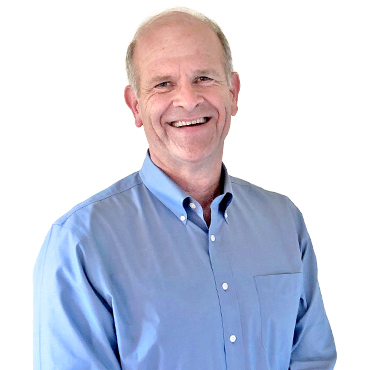
For some, the word “disruption” immediately conjures up visions of upheaval, displacement, chaos, and even loss (of time, money, and security), all of which can certainly be true. Disruption means change from what we know and expect, and that is often uncomfortable and sometimes even painful.
However, disruption can also be an incredibly positive force that creates conditions for new markets, innovations, and opportunities for vibrant growth. When addressed appropriately, disruption can force us to look at our world in new ways, accept change, and look for ways to adapt, evolve, and grow.
While disruption can therefore be an intimidating prospect, the firms that best understand and harness the forces of change are the ones that will not only survive, but also thrive, by exploiting new and exciting growth opportunities.
Disruption paves the way for innovation
All of that said, navigating market disruption is never easy, as illustrated by some major market disruptions in the past. According to Thomas Kinney in his book, The Carriage Trade: Making Horse-Drawn Vehicles in America, the horse-drawn carriage industry reached its peak in the US in 1899 with 6,200 manufacturers in existence. Of course, the advent of the automobile soon changed that statistic.
Carriage manufacturers soon learned that a transition to automobile manufacturing would require more than mechanizing a carriage. Not only were motors a completely new technology for carriage makers to learn, but automobiles also required metalworking skills rather than the fine woodworking typical of carriage design. As a result, the vast majority carriage makers failed to make a successful transition to mechanized transportation.
The one carriage maker who evolved and succeeded in the automotive arena was Studebaker. They did so by recognizing where the market was going and determining what skills would be needed. Specifically, they acquired other firms that had the necessary metalworking skills to make Studebaker a successful automobile manufacturer.
More than 100 years later, the automotive industry is once again facing great disruption. Given the increasingly devastating effects of climate change, the industry is moving away from vehicles powered by an internal combustion engine and moving to product lines dominated by electric vehicles. This represents a significant disruption as legacy automakers need to make this transition without negatively impacting their current product lines and revenue streams. At the same time, Tesla has thrived as a new market entrant by understanding the opportunity for market disruption, the desires of consumers, and the strategy necessary to establish itself as the EV market leader.
Of course, technological innovation isn’t the only source of disruption in today’s world. As we learned over the past few years, disruption can result from a wide range of social, economic, and geopolitical forces:
- A global pandemic caused havoc with the world’s supply chain and required firms to consider how they might reshape their future sourcing strategies.
- Shortages combined with surging demand created serious inflation, and manufacturers have scrambled to restock their inventories while paying more to do so. Consumers have also felt the pain as they face higher prices for gas, automobiles, groceries, and more.
- In an effort to tame inflation, the Federal Reserve raised interest rates six times in 2022 alone. While a necessary counter to inflation, higher interest rates risk producing a recessionary environment in 2023.
Market research’s role in 2023’s uncertainty
So, what do all of these disruptions, both actual and potential, mean for businesses in the year ahead? Uncertainty. Specifically, firms are now grappling with how to best plan, staff, and navigate the uncertainty that accompanies disruption.
In short, after years of operating within a more predictable and healthier economic climate, organizations now face new challenges that will test their business acumen and decision-making skills. How well businesses succeed in understanding and addressing their changing landscape could very well be the difference between falling behind/failing or adapting, innovating, and exploiting new opportunities for greater success.
In this new environment, businesses need to focus on much more than building demand for their products. Instead, they will need to consider a multitude of factors including:
- What market forces are at work and how they could positively or negatively impact sales
- How to best respond to continued material shortages to produce the optimal mix of products that maximizes sales and minimizes customer dissatisfaction and attrition
- How inflation is impacting material and labor costs and the pricing strategy that would be advisable given a need to both protect profitability and customer loyalty
- What product or service innovations fill significant customer needs and are compelling enough to succeed even in a challenging economic environment
- What business partnerships and/or acquisitions are necessary in order to stay relevant in the market
Now, more than ever, organizations need help understanding current and future disruptions that will impact market dynamics, customer needs and mindset, and their firm’s product portfolio. In turn, firms need to thoughtfully invest in mining market insights to navigate a choppy economy, avoid potential threats, and pursue new growth opportunities.
We at Escalent see ourselves as catalysts of progress for industries and firms facing disruption. We deliver on that vision by offering a comprehensive set of advisory, primary and secondary research, data analytics, behavioral science, design thinking, and a team of implementation consultants to address just about any marketing challenge. By blending a deep understanding of human and market behaviors with innovation expertise, we can help clients transform disruptive forces into ideas that positively change the world.
How can we help you navigate disruption in 2023?








